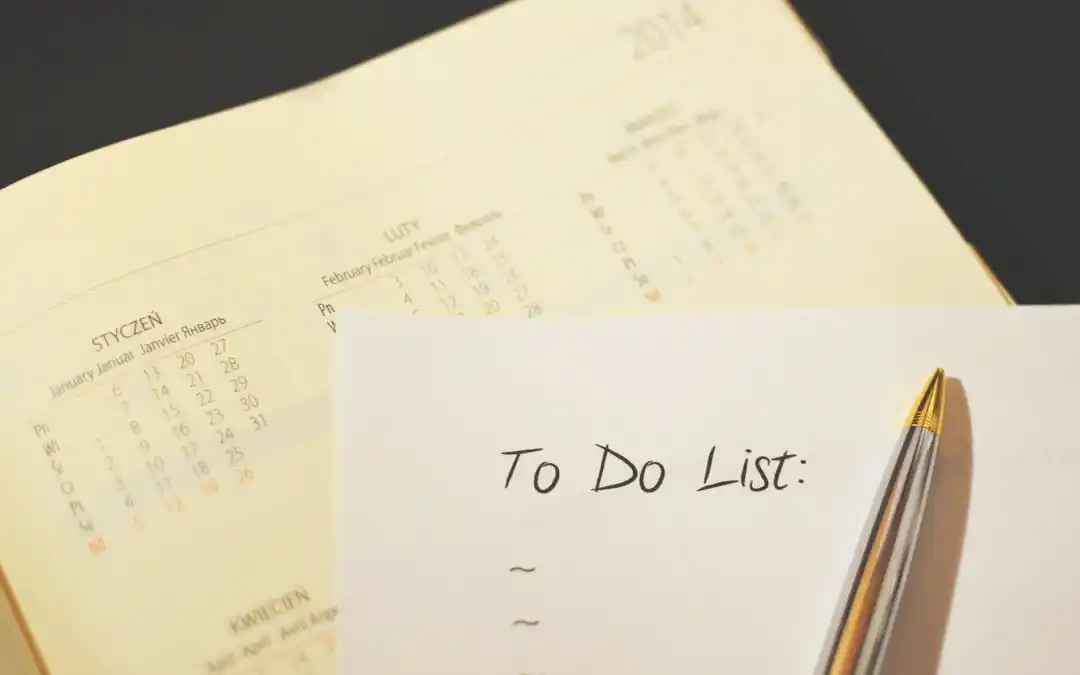
How to Feel Capable: Build Confidence, Challenge Limiting Beliefs, and Create What You Desire
Somewhere inside, you already know you are capable of building the life you want. But self-doubt can be persistent. It sneaks in when you attempt something new, when you face setbacks, or when you compare yourself to others. This happens because your brain is wired to protect you. Your brain tends to focus on threats more than successes, a phenomenon known as the negativity bias. Social comparison and past experiences reinforce these doubts, even when you are competent.
Feeling capable is a skill you can develop, a practice you can strengthen and a belief you can grow over time. People often misunderstand this and wait to feel ready before taking action. They believe capability is a precondition for starting. Waiting to feel ready delays progress because readiness comes from doing, not from thinking. The truth is, you build that feeling by taking the first step. Confidence grows through action. Taking small steps creates evidence that you are capable, which strengthens your belief over time.
Feeling capable of creating what you desire does not involve pretending everything will work out without effort. It requires working with your energy, beliefs, and actions consciously and intentionally. It calls you to show up for yourself every day with honesty, curiosity, and a willingness to grow.
You can learn to feel capable. You can train this belief like a muscle. Let us explore how to cultivate that belief and feel fully capable of creating what you desire.
Uncover Your Limiting Beliefs
Most people carry unconscious rules about what they can and cannot do. These rules come from childhood experiences, family patterns, or early failures. Over time, these rules harden into limiting beliefs that operate in the background. They influence your decisions even when you are not aware of them.
Examples of limiting beliefs include “I am not creative,” “I am not good with money,” “I always fail when I try new things,” and “I cannot lead a team.” These beliefs shape the energy you bring to each situation. They create stories about who you are and what you can achieve. They drain your sense of possibility.
The first step to feeling capable is to surface these beliefs. Ask yourself: What do I believe about my ability to create success? Where did that belief come from? Who first told me that? How true is it? What might be possible if I chose to believe something else?
Use curiosity, not judgment. Acknowledge your limiting beliefs and challenge them with respect and understanding. You are not wrong for having them. They are part of your old story, not your permanent truth. When you meet your limiting beliefs with kindness, you create the space to change them.
Carol Dweck’s research in Mindset: The New Psychology of Success shows that beliefs are not fixed. A fixed mindset locks you into rigid stories. A growth mindset opens new possibilities. When you believe you can improve through effort, you lay the foundation for moving forward.
The International Coaching Federation emphasizes that the process of working through limiting beliefs often requires reframing, curiosity, and intentional action. Reframing invites you to view the same situation from a more empowered perspective. For example, changing “I always fail” to “I am still learning” shifts your energy and your next steps.
Research from Psychology Today suggests that naming and challenging your beliefs can be eye-opening, as most people are unaware of the invisible scripts that influence their choices. By surfacing these beliefs, you gain the power to choose a new path.
In any event, you are not stuck with your old stories. You can rewrite them. You can choose beliefs that support where you want to go and what you want to build. You can cultivate beliefs that make you feel capable of going after what matters to you. Start choosing to believe something more useful and practice it until it feels like second nature.
Build Confidence Through Action
Albert Bandura’s work on self-efficacy demonstrates that people develop confidence through their experiences. When you take action and see progress, even small progress, you strengthen your belief in your capability. Bandura taught that self-efficacy originates from four primary sources: mastery experiences, vicarious experiences, social persuasion, and emotional state management.
Mastery experiences happen when you do something successfully. Even small wins matter. Build evidence that you can follow through on your commitments. You might sign up for a class, read a short article, or schedule one focused hour to work on your goal.
Vicarious experiences come from observing others. When you see someone you respect achieving something you want to achieve, your brain notes that it is possible. Surround yourself with people who are doing the things you want to do. Watch how they work. Study their process. According to Bandura, seeing someone similar to you succeed increases your belief that you can grow as well.
Social persuasion happens when people encourage you. Find people who will say, “You can do this.” Seek mentors, friends, and communities who offer support and challenge. According to research from the University of Kent, encouragement from respected peers increases persistence and performance.
Social persuasion strengthens self-belief by providing external reinforcement that you can succeed. When trusted peers, mentors, or community members say, “You can do this,” they help shift your mindset from doubt to possibility. Research supports this; students who receive peer encouragement exhibit higher persistence and performance in group settings, and individuals who receive peer encouragement tend to persevere with challenges longer.
Managing emotional states means learning to handle anxiety, fear, and frustration. When you feel nervous, remember that your body is preparing you to focus. Use breathing exercises to ground yourself. Reframe nervousness as excitement. According to Verywell Mind, this shift changes your physiological response and increases your performance.
The more you refute old beliefs with new, small experiments, the more your confidence grows. These small behavioral experiments help you collect real-world evidence that actively disproves your limiting beliefs.
Practice a Growth Mindset, Visualization, and Daily Reflection
Carol Dweck’s research on a growth mindset reveals that individuals who believe they can improve with effort tend to persist longer and perform better. Cultivate a growth mindset by praising your effort rather than focusing on your innate ability. Replace “I cannot do this” with “I cannot do this yet.” Using the word “yet” opens possibilities and reminds you that capability is built over time.
Jennifer Moss, author of The Burnout Epidemic, emphasizes that individuals with a growth mindset recover more quickly from stress because they believe they can improve through effort and self-care. They view setbacks as part of the process rather than signs of failure.
In addition to a growth mindset, visualization is a powerful mental tool that trains your mind to feel capable of achieving your desires. Create a sensory-rich picture of your success. Imagine how it will look, sound, and feel to achieve your desired outcome. Picture the environment, the emotions, and the specific actions. Visualization primes your brain for action and strengthens your self-confidence.
Olympic athletes actively use visualization to prepare for competition. Gold medalists often describe mentally rehearsing their routines in exact detail. According to Vox, athletes who visualize their performance develop stronger muscle memory and achieve more consistent results.
Another practice to consider adopting is that of daily reflection. Daily reflection does not need to be complicated. Simply spend five minutes writing down what you did that moved you toward your goal. Or, capture one thing you learned and note what you would like to do differently tomorrow. According to research from Harvard Business School, even small reflection sessions can significantly improve performance and self-efficacy.
Consider these practices because they build the mental foundation that strengthens your sense of capability over time. A growth mindset helps you persist through challenges by teaching you that skills develop with effort. Visualization and daily reflection train your brain to see success as possible and to internalize your progress, which increases confidence, motivation, and long-term performance.
Stay Connected to Your Values
Defining and then living in alignment with your core values helps you build trust in yourself. It creates the foundation for capability because when you know what you stand for, you no longer need to hesitate or overthink. You can unapologetically take actions that feel right for you, which strengthens confidence and reduces internal conflict.
When you define your values and live by them, you begin to filter opportunities, commitments, and goals through a lens that is entirely yours. Your values help you decide where to focus, how to react, and which opportunities to pursue. If you value creativity, for example, you will seek out projects that allow you to build and explore your ideas. If you value service, you may find purpose in helping others achieve their goals.
James Clear, author of Atomic Habits, explains that when your habits align with your identity and your core values, you can create lasting change in yourself. Your actions stop feeling like obligations and instead feel like a natural extension of who you are. This identity-based approach helps you build capability because you no longer chase goals that conflict with your core self.
Additionally, research from Psychology Today emphasizes that alignment with core values increases life satisfaction and resilience. When people face setbacks, those who live by their values are more likely to recover quickly because their sense of success is grounded in what truly matters to them, not in external approval.
The secret to feeling fully capable is to define success as personal, achievable, and entirely your own. When you live by your core values, you make choices that feel right for you, and you define success on your terms. Capability grows when you trust yourself to know where you are going and why it matters.
Create Structure with Goals and Accountability Partners
Capability grows when you build structures that make success possible. Without structure, your biggest dreams can dissolve into abstract wishes. When you activate structure, you create a pathway where your desires can take shape and where your confidence can grow with each step forward.
One way to activate structure is to set goals. According to Forbes, people who set specific, clear goals are significantly more likely to succeed than those with vague aspirations. A goal like wanting to improve my public speaking often lacks direction. A goal like giving one presentation each month for the next three months creates clarity and momentum.
Another way to activate structure is to share your goals with accountability partners or a coach who believes in you. This can help you gain external reinforcement. According to the International Coaching Federation, coaching conversations that include feedback, goal setting, and accountability produce more meaningful progress than casual conversations. When someone else shares your vision, you start to believe that success is possible. Accountability is the structure that keeps people aligned, focused, and motivated to grow.
Ultimately, activating structure will make success more straightforward to achieve by building repeatable systems that support growth. When leaders establish structures of accountability within their teams, those teams tend to excel. When you build similar structures around your own goals, you create the conditions in which your confidence can grow and your capabilities can take shape.
Connection and Self-Care Practices to Build Capability
Feeling capable is not only about setting goals and taking action. It is also about building the emotional, physical, and social foundation that supports your confidence over time. You cannot feel capable if you feel depleted. You will struggle to create what you desire if you are not connected to people who uplift you.
Jennifer Moss and other wellness researchers remind us that sustainable growth comes from caring for our well-being. When you prioritize self-care, you give yourself the fuel to pursue your goals with steadiness and clarity. Protect your sleep. Move your body in ways that feel good and support your energy. Small self-care practices remind your brain and body that you are worth taking care of. This is part of what makes you feel capable.
Connection is equally essential. According to Stanford research, a sense of community strengthens your resilience and makes long-term success more achievable. Feeling connected to others gives you perspective. It reminds you that you are not alone in your growth.
Other people can help you see possibilities you may have missed. They can encourage you when self-doubt shows up. They can celebrate your progress and hold you accountable to your goals. When you feel connected, you build capability faster because you do not have to rely solely on your willpower. Accountability partners, mentors, and peer communities can help you believe in your success.
Curiosity and play are also powerful ways to build capability. Psychology Today reports that curiosity increases intrinsic motivation and expands your ability to learn. Play reduces pressure and permits you to try new things without fear of failure. When you approach your goals with curiosity and playfulness, you stay engaged and keep your creative energy alive.
Bottom Line
Feeling capable of creating what you desire starts with choosing to trust yourself today. You build capability by taking deliberate action. Begin by surfacing your limiting beliefs and challenging them with curiosity. Shift your energy by making intentional choices. Practice a growth mindset. Use visualization. Stay connected to your core values. Build structures that support your goals. Protect your well-being so you can keep going.
When you practice this way of living, you will stop asking if you are capable. You will know you are. You will see it in your actions, your follow-through, and the relationships you build. You will feel it in the energy and joy you bring to each day.
You can start right now and build what matters to you. You are capable.
Heading 1
Heading 2
Heading 3
Heading 4
Heading 5
Heading 6
Lorem ipsum dolor sit amet, consectetur adipiscing elit, sed do eiusmod tempor incididunt ut labore et dolore magna aliqua. Ut enim ad minim veniam, quis nostrud exercitation ullamco laboris nisi ut aliquip ex ea commodo consequat. Duis aute irure dolor in reprehenderit in voluptate velit esse cillum dolore eu fugiat nulla pariatur.
Block quote
Ordered list
- Item 1
- Item 2
- Item 3
Unordered list
- Item A
- Item B
- Item C
Bold text
Emphasis
Superscript
Subscript
.png)
































.webp)








